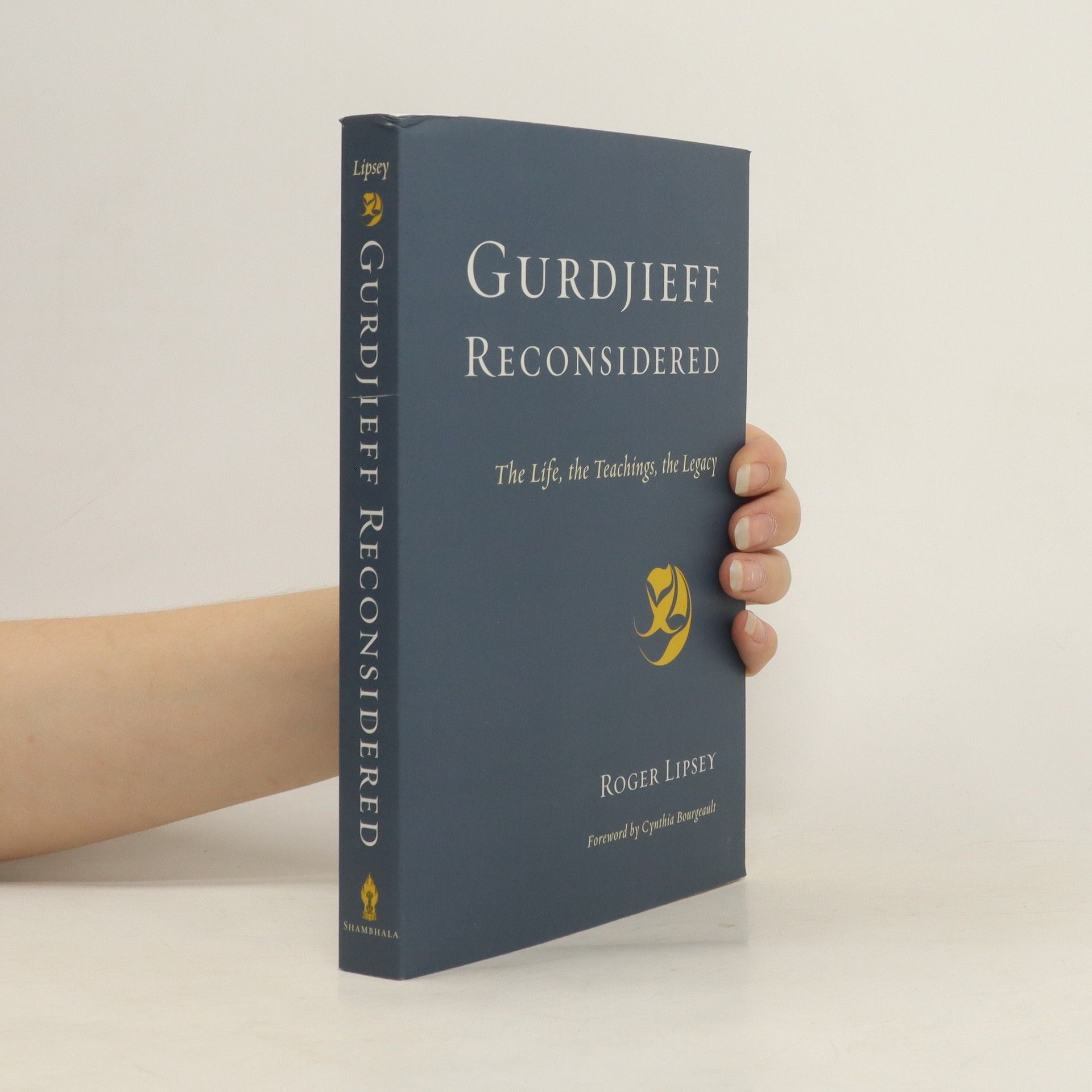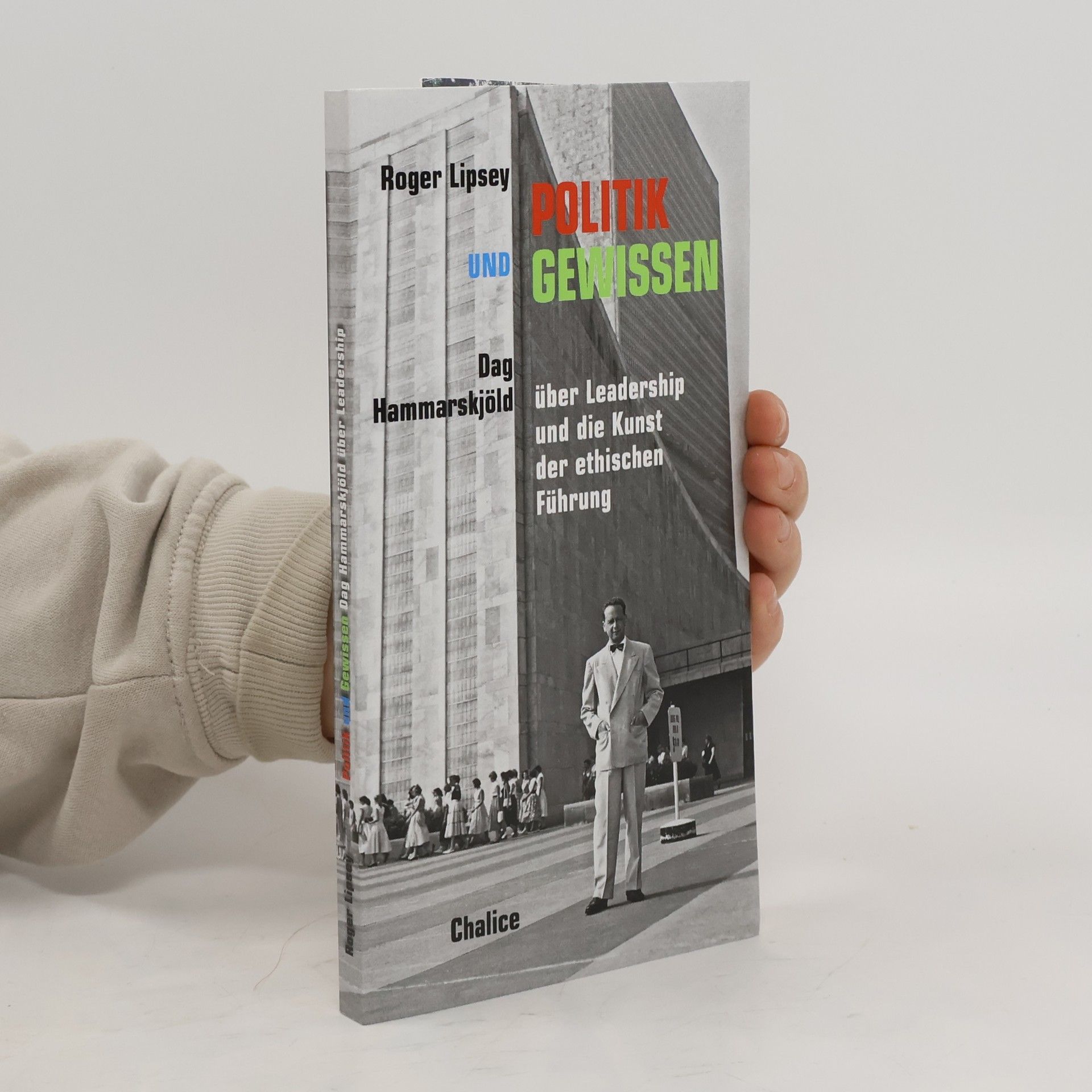Gurdjieff in neuem Licht
Sein Leben, seine Lehre, sein Vermächtnis





Sein Leben, seine Lehre, sein Vermächtnis
Dag Hammarskjöld über Leadership und die Kunst der ethischen Führung
An accessible guide to the principles and vision of Dag Hammarskjöld, a man John F. Kennedy called "the greatest statesman of our century." Dag Hammarskjöld served as Secretary-General of the United Nations from 1953 until his tragic Dag Hammarskjöld served as secretary-general of the United Nations from 1953 until his tragic death in a suspicious plane crash in 1961. During those years he saw the fledgling international organization through numerous crises with skill that made him a star on the international stage. As readers of his now-classic diary, Markings, are aware, Hammarskjöld understood political leadership as an honor calling for resourcefulness, humility, moral clarity, and spiritual reflection. In this accessible handbook, acclaimed biographer Roger Lipsey details the political and personal code by which Hammarskjöld lived and made critical decisions. What emerges is the portrait of a man who struck a remarkable balance between patience and action, empathy and reserve, policy and people. Structured through short sections on themes such as courage, facing facts, and negotiation, Politics and Conscience offers a vision of ethical leadership as relevant today as it was in Hammarskjöld’s time.
From a master biographer and longtime Gurdjieff practitioner, a brilliant new exploration of the quintessential Western esoteric teacher of the twentieth-century.The Greek-Armenian teacher G.I. Gurdjieff was one of the most original and provocative spiritual teachers in the twentieth-century West. Whereas much work on Gurdjieff has been either fawning or blindly critical, acclaimed scholar and writer Roger Lipsey balances sympathic interest in Gurdjieff and his "Fourth Way" teachings with a historian's sense of context and a biographer's feel for personality and relationships. Using a wide-range of published and unpublished sources, Lipsey explores Gurdjieff's formative travels in Central Asia, his famed teaching institution in France, the development of the Gurdjieff Movements and music, and, above all, Gurdjieff's fascinating continuous evolution as a teacher.Published on the 70th anniversary of Gurdjieff's death, Gurdjieff Reconsidered delves deeply into Gurdjieff's writings and those of his most important students, including P. D. Ouspensky and Jeanne de Salzmann. Lipsey's comprehensive approach and unerring sense of the subject make this a must-read for anyone with a serious intention to explore Gurdjieff's life, teachings, and reputation.
Kodo Sawaki est considéré comme l’un des plus grands maîtres zen du XXe siècle. Certains de ses disciples, notamment Taisen Deshimaru, ont eu une grande influence sur le zen en France et dans toute l’Europe. Les enseignements dans ce recueil affirment que l’Homme doit se trouver et créer sa propre vie. "Chacun d’entre nous se dresse telle une falaise au plus haut du ciel. Aucune comparaison n’est possible : tu es toi, je suis moi. Tous se moquent de toi parce que tu n’es qu’un bon à rien ? Il suffit que tu te trouves toi-même. Découvre la nature de tes propres talents. Enracine-toi fermement en toi-même, demeure en toi-même de façon stable. Apprendre à se connaître - existe-t-il quelque chose de plus extraordinaire ?" ― Kodo Sawaki